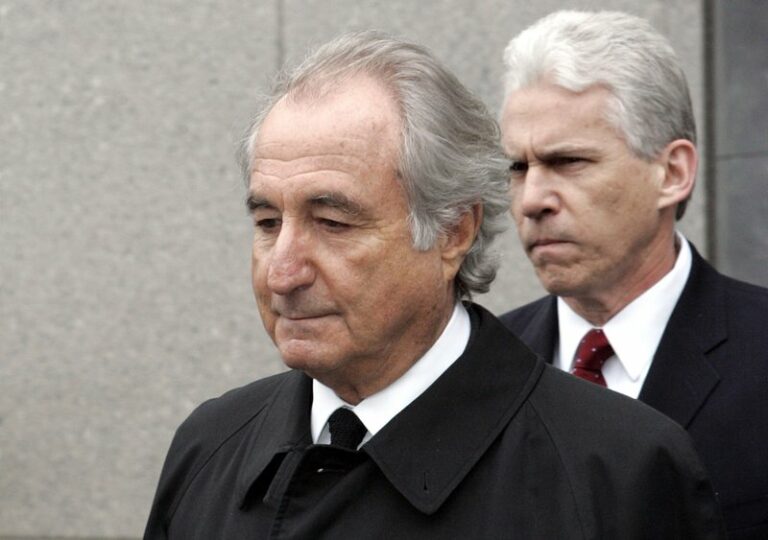Bernard Madoff should not be released early from prison even if kidney disease kills him within months, prosecutors said Wednesday as they cited the scope and magnitude of his decades-long Ponzi scheme that cost thousands of investors billions of dollars.
Over 500 victims had written to a Manhattan federal court judge to oppose early release for the 81-year-old Madoff from a 150-year sentence imposed in 2009, while only 20, or 4% of letter writers, supported it, prosecutors said.
Madoff had demonstrated “a wholesale lack of understanding of the seriousness of his crimes and a lack of compassion for his victims, underscoring that he is undeserving of compassionate release himself,” prosecutors said.
Prosecutors cited numerous letters from victims, including one from a woman who said her husband of 40 years committed suicide after learning of the fraud and another in which an 84-year-old victim said: “Why should he be shown any compassion, when he had none for his many victims?”
Madoff’s lawyer had asked that he be released early under the terms of a program that permits compassionate release for some inmates if they have less than 18 months to live.
The Federal Bureau of Prisons has agreed he has less than 18 months to live but has denied early release on the grounds that it “would minimize the severity of his offense.”
Madoff is confined to a wheelchair while he battles terminal kidney disease and other ailments, his lawyer said in an early February court filing.
The attorney, Brandon Sample, said Madoff has a back brace and medical shoes and is permitted to be aided by an inmate companion as he suffers from leg cramps, weakness, fatigue and uses an oxygen container to relieve shortness of breath.
Madoff began his sentence months after he confessed to his family and others that the $17.5 billion entrusted to him by thousands of investors had never been invested, even though he claimed it had grown in value by tens of billions of dollars. At the time, there was only several hundred thousand dollars left.
His Ponzi scheme, estimated to have begun as early as the 1980s, destroyed or crippled the finances of many individuals and charitable organizations worldwide.
Meanwhile, prosecutors said in their filing Wednesday, Madoff live extravagantly, using investor money to buy a $4.4 million Manhattan home, fund a $6.5 million loan for a home in Nantucket and to finance two yachts worth $11.5 million and the salaries of housekeepers and a personal boat captain.
In arguing for compassionate release for Madoff, Sample called his client’s sentence “symbolic,” saying it was given for retribution, deterrence and for the victims.
He argued compassionate release was appropriate in light of his terminal illness, life expectancy of less than 18 months and “our society’s value and understanding of compassion.”
If freed, Madoff will live with a friend, financially supported by Social Security and Medicare benefits, Sample wrote.
Sample did not immediately comment on Wednesday’s submission by prosecutors.
Last week, Irving H. Picard, a trustee appointed to recover money for Madoff’s victims, reported that $13.93 billion had been recovered and nearly all of it had been distributed, meaning nearly 70% of the allowable losses reported by Madoff’s customers will have been repaid.
(AP)











3 Responses
He should die in prison.
Life in prison should mean life in prison. Let him be carried out feet first.
here we see the hypocrisy of liberals on prison-related compassion, a guy blows up a plane killing everyone on board, let him out if he may have cancer that might be terminal. a guy commits murder, let him out early, he may have learned his lesson.
BUT if it’s a white-collar crime, then throw away the key!
I am not saying to let him out, I am saying their priorities are reversed